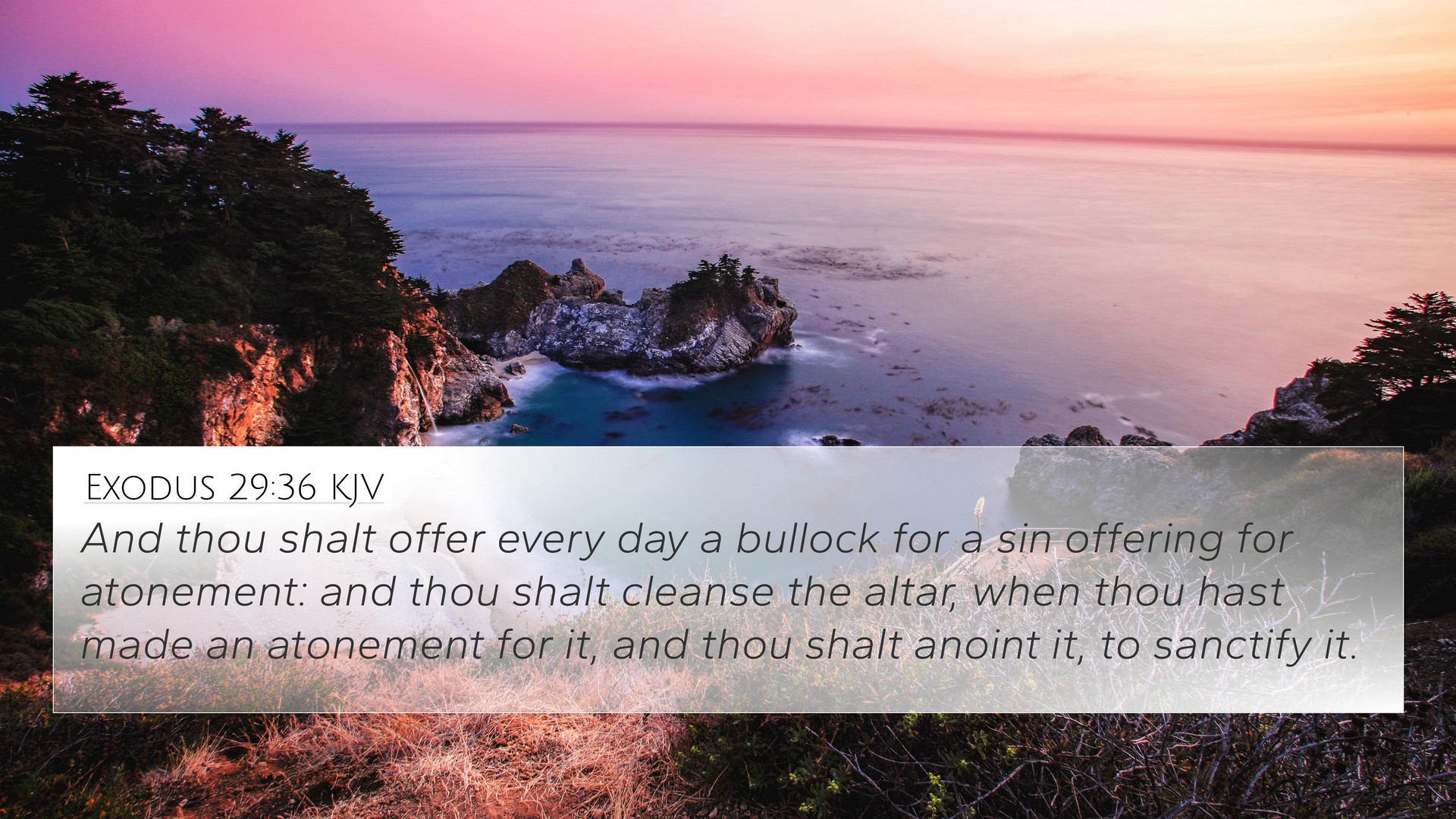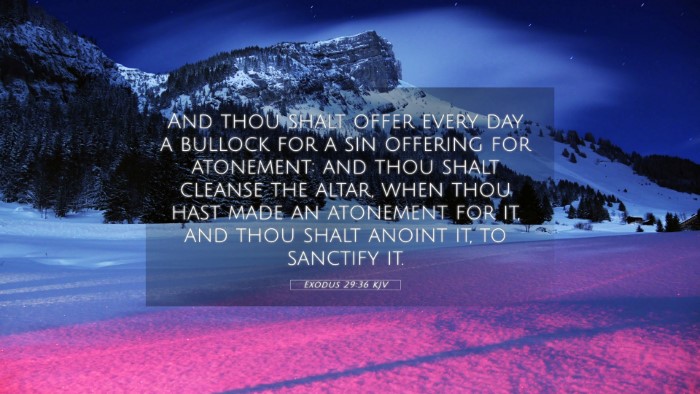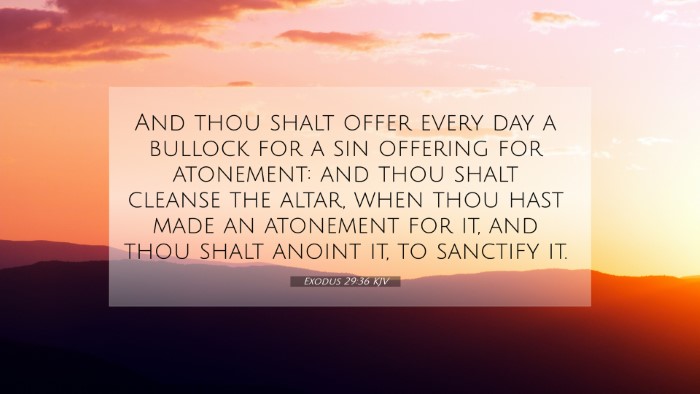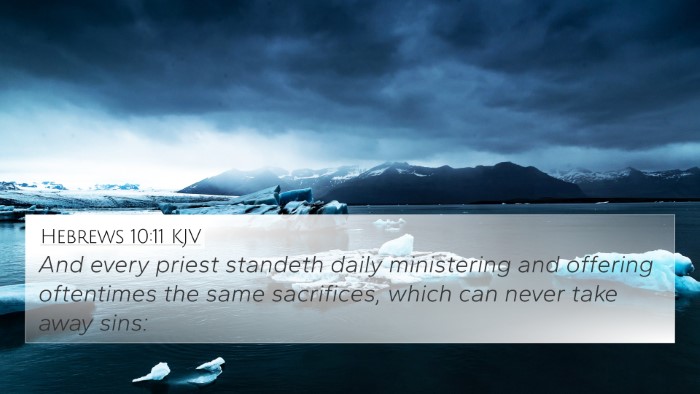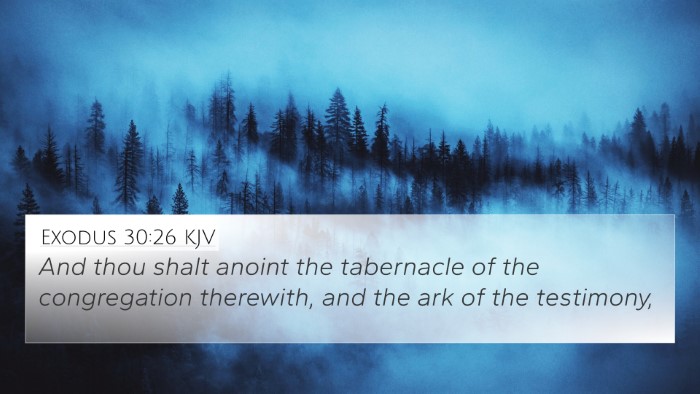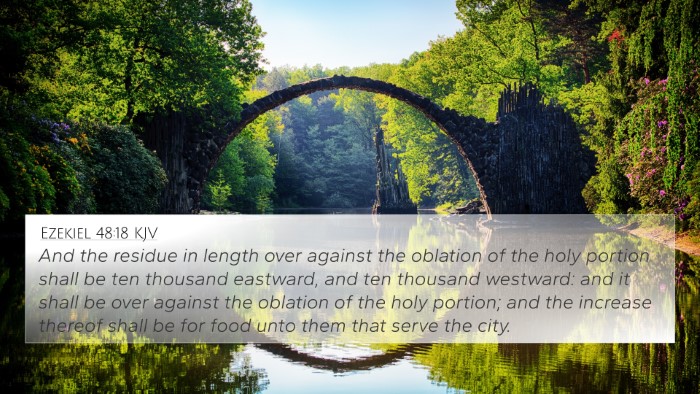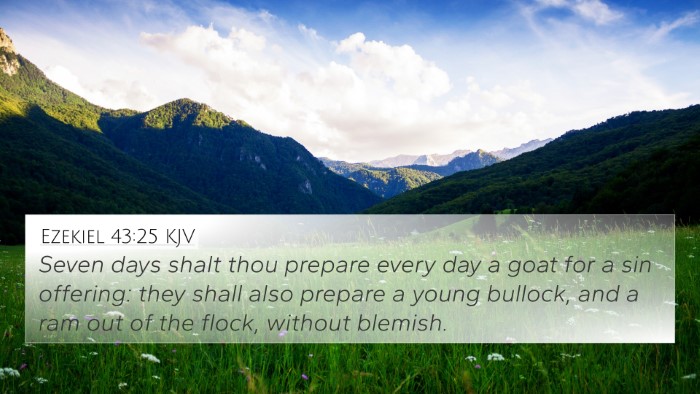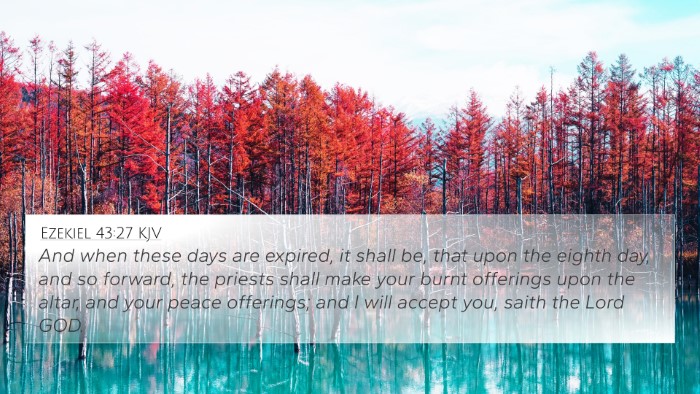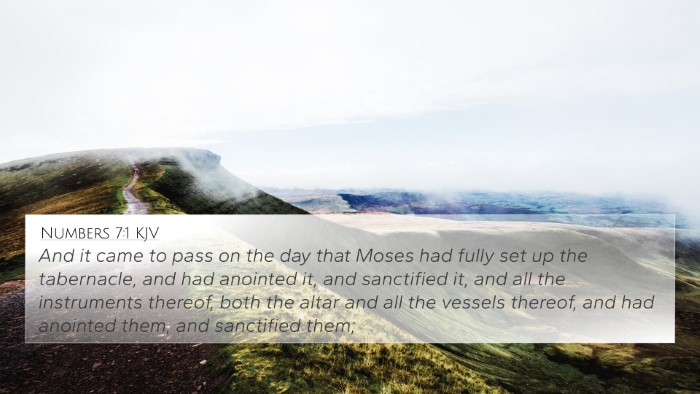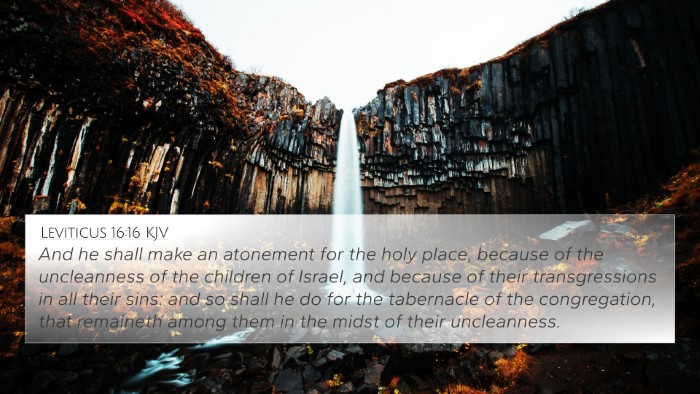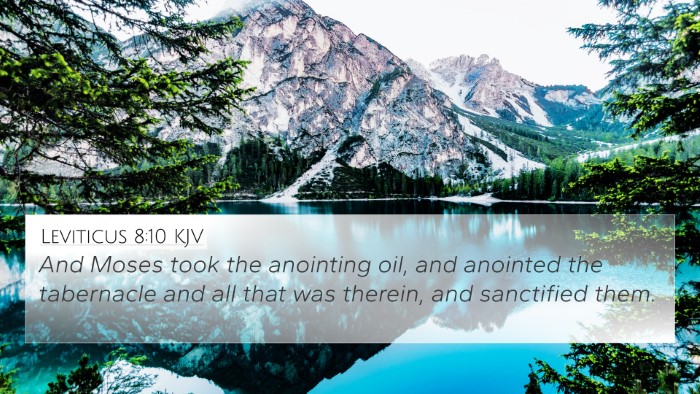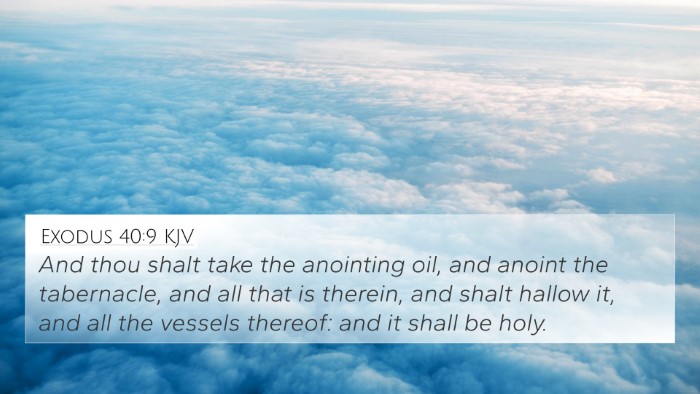Understanding Exodus 29:36
Exodus 29:36 states: "And thou shalt offer every day a bullock for a sin offering for atonement: and thou shalt cleanse the altar, when thou hast made an atonement for it, and thou shalt anoint it, to sanctify it." This verse conveys profound theological truths about sin, atonement, and holiness in the worship practices established for the Israelites.
Meaning and Interpretation
The following insights are derived from public domain commentaries by Matthew Henry, Albert Barnes, and Adam Clarke, focusing on Exodus 29:36 and its implications.
1. The Significance of Sin Offerings
Matthew Henry emphasizes the perpetual nature of sin offerings, indicating that the daily sacrifice serves to constantly remind the people of their need for atonement and reconciliation with God. This reinforces the concept of sin being a continuous issue that requires regular attention.
2. Atonement and Cleansing
According to Albert Barnes, cleansing the altar symbolizes not just the removal of sin but also the restoration of the altar's sanctity, which is necessary for the worship of God. The act of decontaminating the altar signifies God's holiness and the serious nature of approaching Him.
3. Anointing and Sanctification
Adam Clarke draws attention to the symbolic act of anointing the altar. Anointing in the Old Testament often implies setting apart for divine purposes. This indicates that sanctifying the altar is essential for it to properly serve as a place of sacrifice and worship.
Cross-References and Thematic Connections
Exodus 29:36 serves as a pivotal verse in understanding atonement and holiness within the Biblical narrative. Here are notable cross-references that link with this verse:
- Leviticus 4:20 – Discusses the process of atonement for the congregation, reinforcing the role of sin offerings.
- Hebrews 9:22 – States that without shedding of blood there is no remission of sin, connecting to the theme of atonement in Exodus.
- Psalm 51:7 – "Purge me with hyssop, and I shall be clean." This aligns with the concept of purification found in the sacrificial system.
- Romans 8:3 – Relates to the idea that Christ fulfilled the law of sin and provided ultimate atonement.
- 1 John 1:7 – "The blood of Jesus Christ his Son cleanseth us from all sin," a New Testament correlation to the sacrificial system of atonement.
- Hebrews 10:4 – "For it is not possible that the blood of bulls and of goats should take away sins," indicating the inadequacy of old covenant sacrifices in light of Christ.
- Ezekiel 36:25 – "Then will I sprinkle clean water upon you," hinting at the spiritual cleansing prophecy through the Messiah.
- Isaiah 53:5 – "By his stripes we are healed," emphasizing the sacrificial nature of Christ's atonement in essence to the offerings in Exodus.
- Matthew 26:28 – Jesus’ declaration of His blood for the remission of sins links back to the themes of atonement established in Exodus.
- 1 Peter 2:9 – "A chosen generation, a royal priesthood," reflects the people of God being set apart and sanctified, paralleling themes in Exodus.
Utilizing Cross-References
Understanding Exodus 29:36 requires recognizing its place within the broader Biblical narrative. Engaging in Bible cross-referencing allows for a deeper study of themes such as:
- Daily Rituals and Atonement: Explore how other scriptures address key themes of daily practices in worship.
- The Role of the Blood: Examine the importance of blood in sacrificial offerings elucidated throughout the Bible.
- Sanctification Process: Identify the ways in which God set apart people and places for His service in both the Old and New Testaments.
Conclusion
Exodus 29:36 highlights crucial elements of sacrifice and atonement, drawing connections to a wider theological framework within the Scriptures. By utilizing tools for Bible cross-referencing and engaging with these texts, believers can deepen their understanding of God’s redemptive plan.
